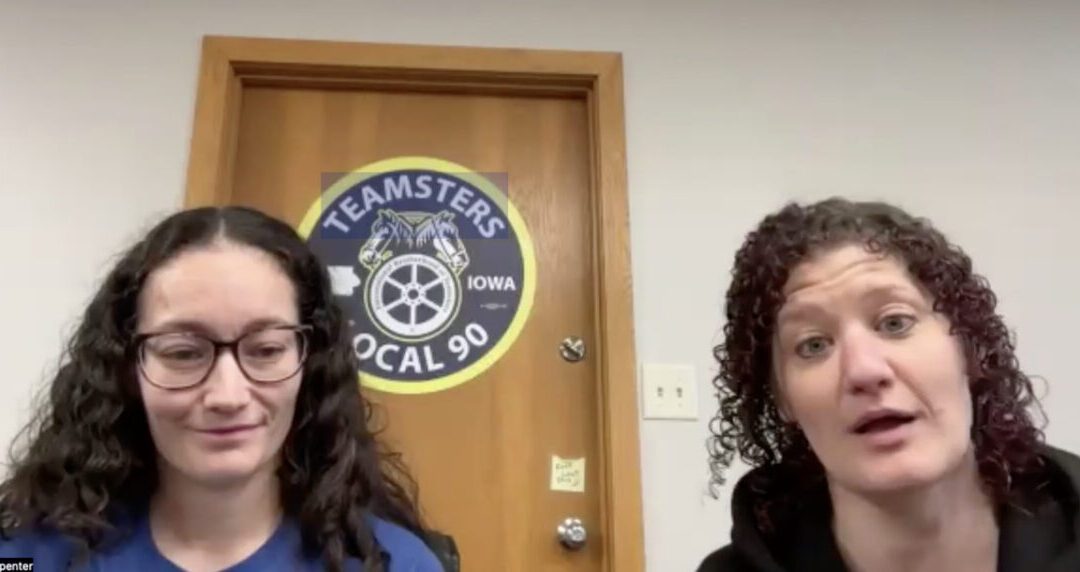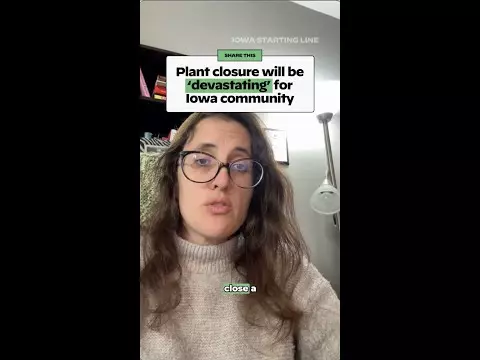
A custumer pumps gas at a gas station in Mundelein, Ill., Thursday, Feb. 8, 2024. (AP Photo/Nam Y. Huh)
At least 14 workers are being sued by an Iowa company over noncompete agreements they say are unfairly keeping them from finding other jobs.
Seneca Companies was started in 1972 by Chris Risewick, who sold petroleum equipment. Over the decades, the Des Moines-based business has diversified into selling and servicing fuel equipment, and has grown to include 10 branches throughout the country.
Seneca was family owned until this year, when the company announced it would be “partnering” with “an affiliate” of Trive Capital, a Texas private equity firm.
According to three former Seneca employees—who spoke to me on the condition of anonymity due to pending litigation with the company—that affiliate was OWL Services, a Michigan company that builds and maintains fuel infrastructure across the US.
The workers told me OWL sells and services Wayne Fueling Systems, a direct competitor of Gilbarco Veeder-Root fuel systems Seneca sold previously. The new owners at Seneca told longtime workers they’d now have to learn and become certified in Wayne’s entirely different system.
The problem? Gilbarco is huge in Des Moines and across the state, with one former technician telling me the vast majority of gas stations in the Des Moines metro had Gilbarco pumps installed. Switching to Wayne would mean not only retraining on an entirely different system, but a lot less work for the techs, many of whom are hourly wage workers.
“Some local technicians haven’t been getting their hourly,” one former tech who quit this spring told me. “I’m glad I jumped ship when I did, because I couldn’t afford (the pay cut).”
When dozens of those workers quit, finding work at companies that allowed them to continue servicing Gilbarco, Seneca started filing lawsuits, alleging the workers were violating their noncompete agreements—which one employee said prohibited similar work within a 200-mile radius.
There are now lawsuits against 14 former workers and counting, according to the attorney of some of those workers.
“You only have so many options to go elsewhere,” said one former Seneca service tech now being sued. “They kind of don’t want me employed by another company. But I don’t necessarily know how I’m a competitor anymore,” since Seneca no longer sells and services that fuel system.
“I know noncompetes are mainly for proprietary knowledge, trade secrets—anything that could cripple a company,” he added. “But, for me, I had no knowledge, no access to anything like that.”
“It’s horrible,” said another. Since the lawsuit, he’s been unable to sleep through the night. “It was tough to leave Seneca. But if they weren’t going to be Gilbarco, I couldn’t leave my knowledge on the curb.”
A third worker told me the lawsuit was a major stressor in his life.
“I cannot afford an attorney or time to (go) to court, so even if I win this ridiculous noncompete lawsuit, I still lose because of all the money I had to spend and the stress and hardship it places on me and my family,” he told me. “This whole situation is terribly wrong.”
For its part, “Seneca Companies has no comment on pending litigation regarding noncompete violations,” Jodi Solomon, Seneca’s senior vice president of marketing, wrote in response to a request for comment.
Biden tried banning noncompetes
The Biden administration did attempt to crack down on noncompete agreements earlier this year, saying such agreements cost workers jobs and lead to lower wages because of their restrictions. Around 18% of all American workers are subject to such agreements. Many are made to sign the contracts right at the beginning of a job, when it’s harder to say no.
“Noncompete clauses keep wages low, suppress new ideas, and rob the American economy of dynamism,” Federal Trade Commission (FTC) Chair Lina Khan said.
But in August, a Texas court struck down the federal ban on noncompetes. The FTC says it is “considering” appealing that decision, and says the ruling “does not prevent the FTC from addressing noncompetes through case-by-case enforcement actions.”
States across the country have a patchwork of different rules about noncompetes.
Four states—Minnesota among them—ban noncompete agreements entirely. Another nine states, including Illinois, restrict them for low-wage workers. But Iowa only restricts noncompetes for certain health care professions.
Support Our Cause
Thank you for taking the time to read our work. Before you go, we hope you'll consider supporting our values-driven journalism, which has always strived to make clear what's really at stake for Iowans and our future.
Since day one, our goal here at Iowa Starting Line has always been to empower people across the state with fact-based news and information. We believe that when people are armed with knowledge about what's happening in their local, state, and federal governments—including who is working on their behalf and who is actively trying to block efforts aimed at improving the daily lives of Iowan families—they will be inspired to become civically engaged.


Des Moines Allegiant pilot warns a strike could be coming
"Allegiant needs to invest in their people and their pilots." So says Tyler Heavey, a captain with Allegiant Airlines for the last six years. He...

Starbucks strike comes to Iowa: How you can help
"The pressure keeps rising." That's what Jacob Scroggins told me recently. (If you don't remember him from my earlier article on it, he's a shift...

UnityPoint nurses likely win union vote: News and layoffs from Iowa Worker’s Almanac
Working class news you can use: Voting on a union: The UnityPoint vote among 1,776 health care professionals at four Des Moines hospitals on whether...

2 Iowa Starbucks stores join escalating national strike, and more Iowa Worker’s Almanac news and layoffs
News for the Iowa working class for the week of Dec. 4, 2025: 2 Iowa Starbucks stores join escalating national strike: Two of Iowa's four unionized...

1,776 Des Moines nurses voting on union in largest private-sector election ever
After a delayed vote because of the government shutdown, hundreds of nurses at four UnityPoint Health hospitals in the Des Moines area are voting...

Iowa Worker’s Almanac: News and layoffs for Nov. 20, 2025
News briefs for the Iowa working class for the week of Nov. 20, 2025: Iowa legislators fight for Burlington workers: House and Senate Legislative...





